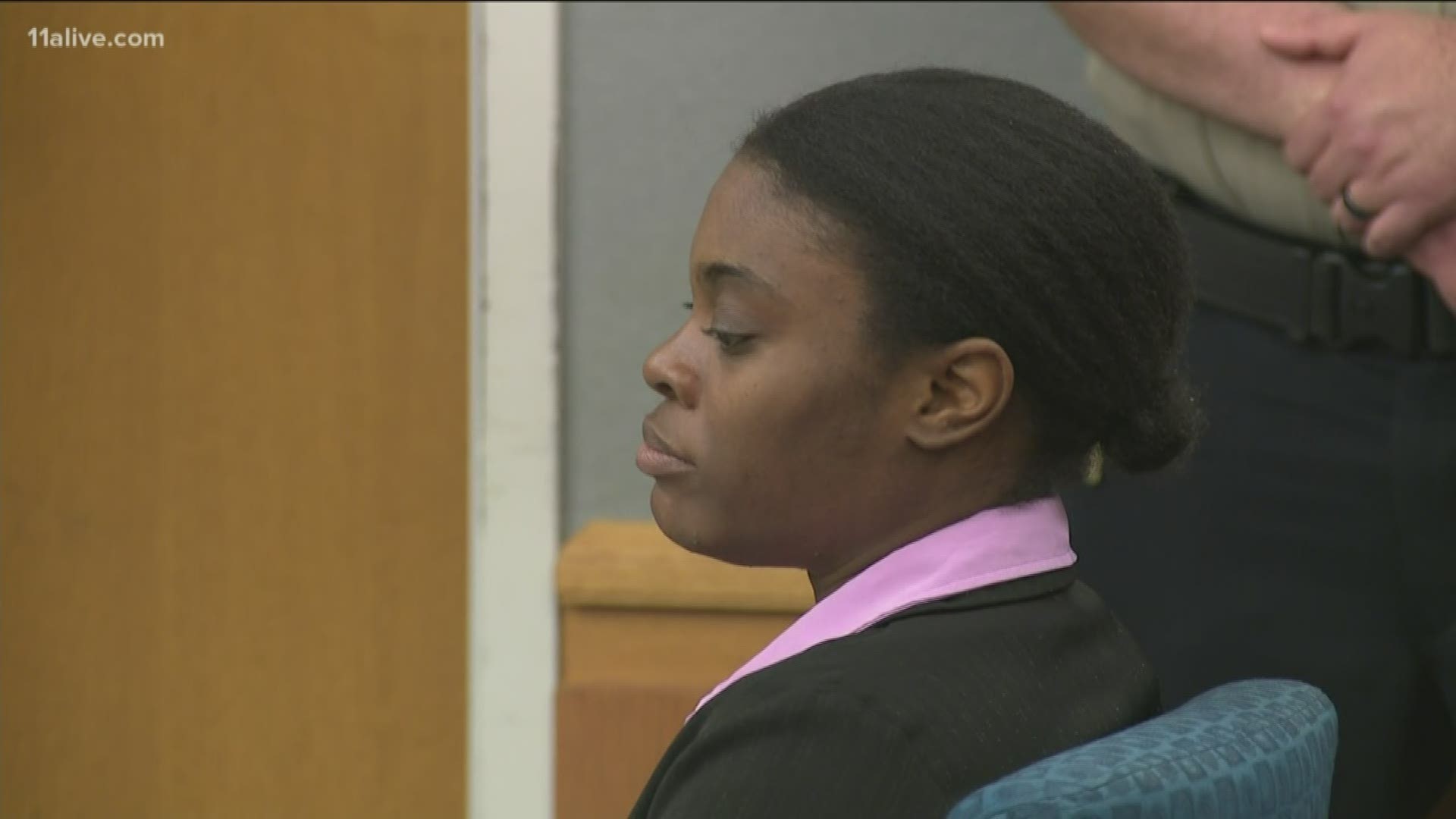GWINNETT COUNTY, Ga. — Tiffany Moss was convicted in the murder of her 10-year-old stepdaughter Emani. The child starved to death and then her body was burned in an attempt to conceal the death, prosecutors said.
It took only hours for a jury to convict Tiffany Moss and condemn her to death, but it could be years before the sentence is carried out.
Ordinarily, when a convicted person has been sentenced to death, an appeal of the sentence by their attorneys is automatic.
According to Cobb County prosecuting attorney Latonia Hines, once a death sentence has been handed down by a jury and affirmed by a judge, the convicted felon is immediately taken from the courtroom.
They are processed in order to be transitioned to the Georgia Diagnostic and Classification Prison in Butts County. That is the state's facility that holds Georgia's Death Row and where executions are carried out in the state.
In an ordinary death penalty case, during the appellate stage, attorneys will ask for a transfer of the case and of the convicted person.
Meanwhile, the convicted individual will begin to serve time in prison while the transcript of the entire case is prepared.
Hines said that defense attorneys ordinarily prepare their appellate briefs, which are based on the transcript of the case. Once they file their briefs with the court, the state, in turn, files a response, based on the defense's paperwork.
Following this, oral arguments are scheduled, which allows both sides to present their cases in an appellate court.
"The ordinary timeframe for this entire process is usually years," Hines said. "But this case is completely unusual."
According to statistical data from the Department of Justice, as of 2010, the average time between a death sentence and execution in the United States is about 15 years.
The judge in the Tiffany Moss case set a June 7-to-14 execution date for Moss following Tuesday's sentencing.
Shortly after the conclusion of Tuesday's hearing, the standby attorney appointed by the court says they would be filing an appeal on behalf of Tiffany Moss.
According to Hines, this would immediately trigger a delay in the anticipated timeframe that had been set by the judge.
"Other parties with interests in death penalty cases -- like the Southern Poverty Law Center and the ACLU -- will likely file appeals also, which would create additional delays," Hines said.
The state, Hines said, would likely argue that those agencies have no standing to appeal in the case and that the execution should proceed.
Even with potential delays, it is possible that "this could be the most expedited death penalty case you've seen in your life," Hines said. "That's barring a last-minute stay from the governor."

